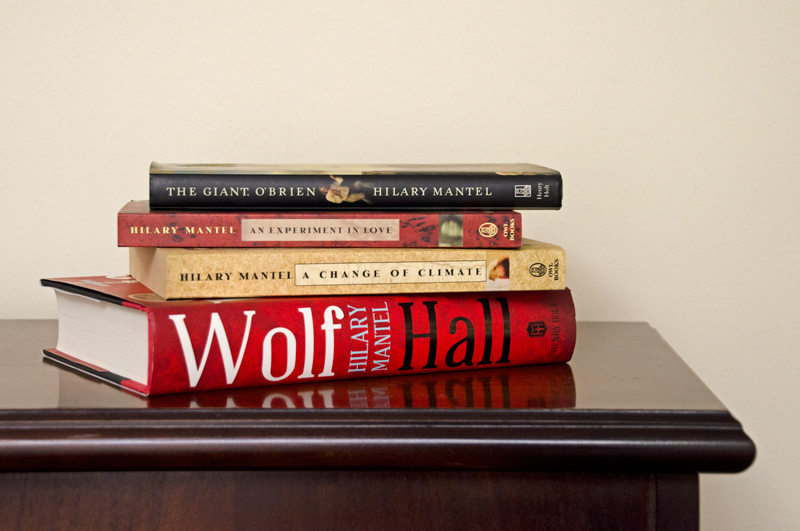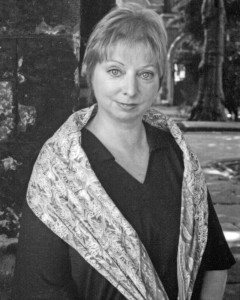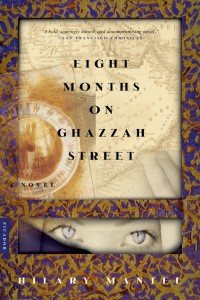The Huntington’s blog takes you behind the scenes for a scholarly view of the collections.
Add Dame to Her Name
Posted on Mon., June 30, 2014 by

Before Hilary Mantel published the Man Booker Prize–winning Wolf Hall (2009) and Bring Up the Bodies (2012), she had written nine novels, including A Change of Climate (1994), An Experiment in Love (1995), and The Giant, O’Brien (1998).
British author Hilary Mantel has been named Dame of the British Empire in Queen Elizabeth’s annual birthday honors, announced earlier this month. The Huntington, as home to her literary archive, celebrates and congratulates Dame Hilary. Followers of Verso will recall reading about her two most recent novels, Wolf Hall and Bring Up the Bodies, which have attained enormous success in their account of the life and career of Thomas Cromwell, statesman and advisor to King Henry VIII. Both novels won Britain’s prestigious Man Booker Prize (back-to-back wins by a writer are unprecedented), and both were recently produced on stage by the Royal Shakespeare Company in Stratford. The two plays currently are being performed in London’s Aldwych Theatre, and television productions will be on view in the United States early next year.

Hilary Mantel. Photo by Jerry Bauer.
Mantel’s accomplishments with her two Cromwell novels are eminently Dame-worthy in themselves, but the honor afforded her by the queen also stems from her entire body of work, stretching back nearly 30 years and encompassing novels, essays, and memoirs. Her novels Eight Months on Gazzah Street and A Change of Climate draw on her own experiences living in Saudi Arabia and South Africa, where her geologist husband was stationed. In An Experiment in Love, winner of the Hawthornden Prize, Mantel follows three girls as they begin university life, exploring women’s ambitions and desires. A pair of novels, Every Day is Mother’s Day and its sequel, Vacant Possession, are wickedly hilarious satires of familial relationships, while Fludd is a humorous look at a down-at-the heels Catholic Church in a dismal English village where, to the consternation of the priest, mysterious things happen.
Two historical novels that preceded Mantel’s Cromwell fiction are A Place of Greater Safety, about the French Revolution (it won the Sunday Express Book of the Year Award), and The Giant, O’Brien, the story of the real Charles O’Brien who came to London to earn money as a freak on display. Mantel’s 2005 novel, Beyond Black, featuring a medium who appears harmless but who is capable of unleashing terrible psychic damage, was shortlisted for the Orange Prize.
Mantel explored her own background in her memoir Giving Up the Ghost, revealing how her own habits of introspection and self-examination, together with her rather unorthodox upbringing, informed the themes of her fiction.

Eight Months on Ghazzah Street (1988) drew on the author’s own experiences living in Saudia Arabia.
Asked her reaction to being named a dame, Mantel noted that she is thrilled and honored, as well as gratified to know that the merit she saw in her own writing is also perceived by others. But, she says this honor in no way signals the culmination of her writing career, noting that she feels “very energized,” has a lot of new work before her, and looks ahead to her “most exciting writing years” still to come. For the near future, all of us can look ahead to the publication of The Mirror and the Light, the third and final volume in her account of Thomas Cromwell, and The Huntington can anticipate receiving the manuscripts and drafts for this novel, to join the other manuscripts in the archive of her papers.
Sara S. "Sue" Hodson is curator of literary manuscripts at The Huntington.